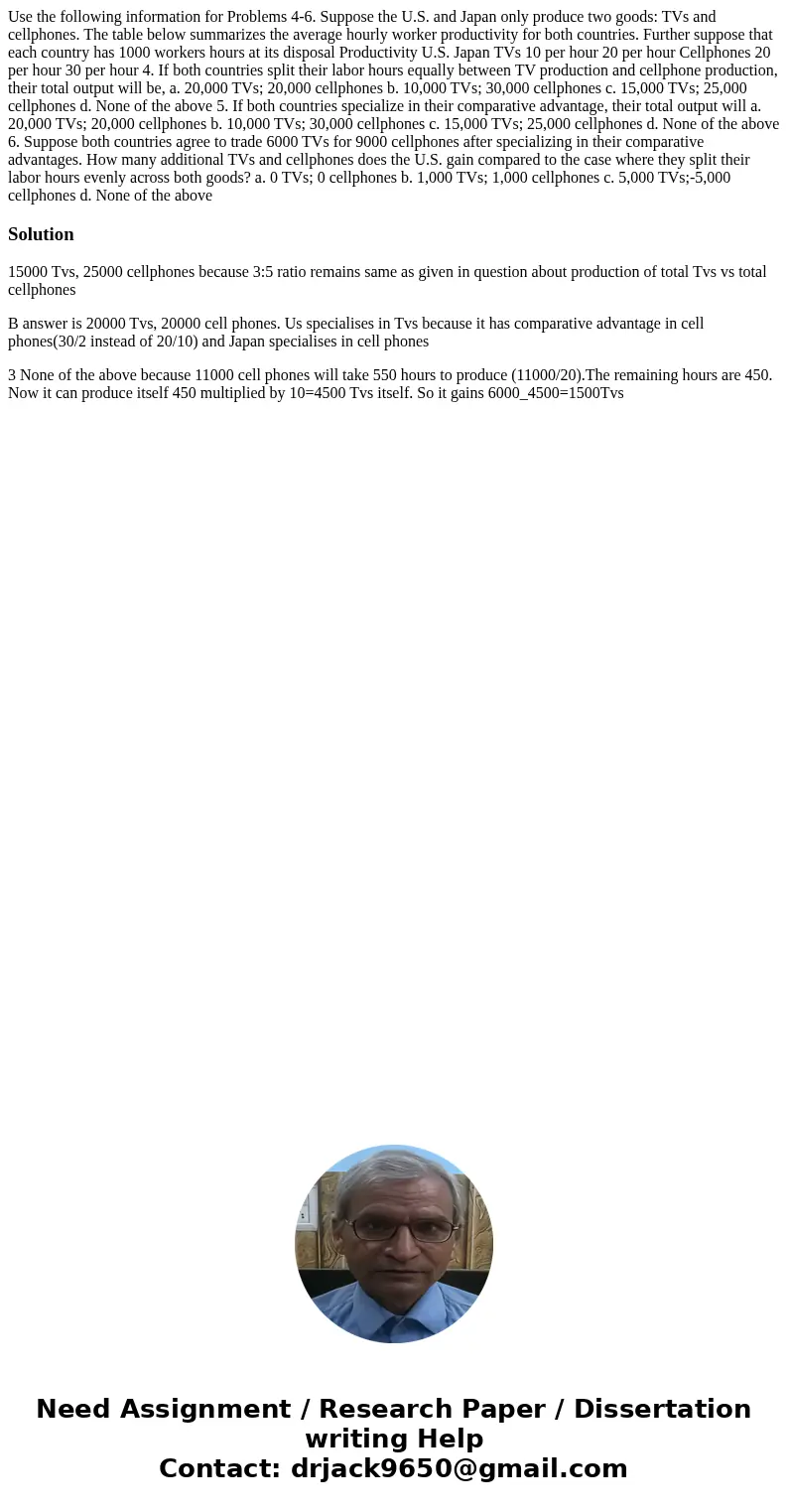Use the following information for Problems 46 Suppose the US
Use the following information for Problems 4-6. Suppose the U.S. and Japan only produce two goods: TVs and cellphones. The table below summarizes the average hourly worker productivity for both countries. Further suppose that each country has 1000 workers hours at its disposal Productivity U.S. Japan TVs 10 per hour 20 per hour Cellphones 20 per hour 30 per hour 4. If both countries split their labor hours equally between TV production and cellphone production, their total output will be, a. 20,000 TVs; 20,000 cellphones b. 10,000 TVs; 30,000 cellphones c. 15,000 TVs; 25,000 cellphones d. None of the above 5. If both countries specialize in their comparative advantage, their total output will a. 20,000 TVs; 20,000 cellphones b. 10,000 TVs; 30,000 cellphones c. 15,000 TVs; 25,000 cellphones d. None of the above 6. Suppose both countries agree to trade 6000 TVs for 9000 cellphones after specializing in their comparative advantages. How many additional TVs and cellphones does the U.S. gain compared to the case where they split their labor hours evenly across both goods? a. 0 TVs; 0 cellphones b. 1,000 TVs; 1,000 cellphones c. 5,000 TVs;-5,000 cellphones d. None of the above 
Solution
15000 Tvs, 25000 cellphones because 3:5 ratio remains same as given in question about production of total Tvs vs total cellphones
B answer is 20000 Tvs, 20000 cell phones. Us specialises in Tvs because it has comparative advantage in cell phones(30/2 instead of 20/10) and Japan specialises in cell phones
3 None of the above because 11000 cell phones will take 550 hours to produce (11000/20).The remaining hours are 450. Now it can produce itself 450 multiplied by 10=4500 Tvs itself. So it gains 6000_4500=1500Tvs

 Homework Sourse
Homework Sourse